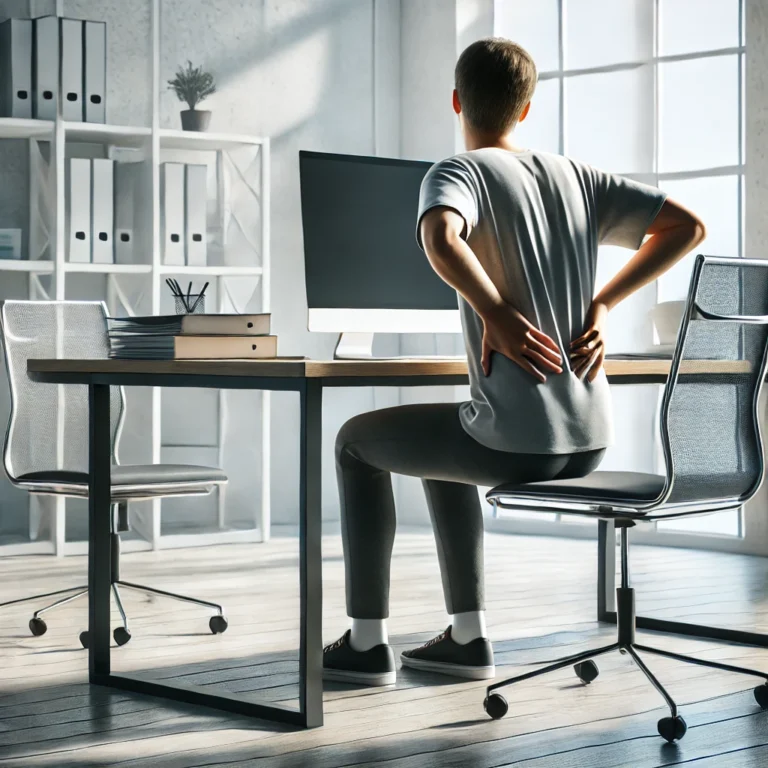Introduction
Lazy culture has sadly become synonymous with society today due to the fast and busy society that has been created. It is quite apparent that more and more our paid work or proximal interpersonal entertainment, going through traffic interfaces or ‘drive through’ windows or actually driving in automobiles has negative impacts on our health. In this article written by the writer, the writer will discuss some of the dangers of prolonged sitting and how best to protect yourself.
What Happens When You Sit for Too Long?
In other words, when you are sitting, your body metabolism is slow, and this is the worst thing that could happen, especially to sedentary people. Blood circulation is also relatively minimized while the muscles tend to be much less contractionary. Of course, these changes over the course of a few years can result in critical health complications like reduced blood flow and calorie expenditure.
Increased Risk of Cardiovascular Diseases
For a long list of negative consequences of sitting most of the time, the worst that one is likely to encounter is heart risks. It has been found that writing for over eight hours doubles the risks of cardiovascular diseases. This risk is present regardless of the amount of daily exercise, so it is necessary to move often.
Weight Gain and Obesity
It is a common truth that an excess of sitting down causes weight gain. Being on a chair for a long time reduces the flow of food in the body hence poor calorie elimination. Together with improper diet, it causes obesity that in turn leads to several heath complications.
Weak Muscles and Poor Posture
Sitting for long causes stiffness and reduces the strength of muscles particularly the lower back and legs. To that effect, it can As a result, it also results in slouching which exerts extra pressure on the spine. This can gradually result in back ache and musculoskeletal disorders that are long term.
Mental Health Implications
It’s not only the downside of a physically inactive lifestyle but also another example of the health risks posed by sitting down for too long. It is now credited that sitting for long periods is associated with illnesses of mental health such as anxiety and depression. Daily PA causes release of endorphins, which are vital for mood regulation, and decreased PA results for a decrease in the release of endorphins.
Digestive and Organ Problems
A period of sitting puts pressure on the stomach, thus, its foods take a long to digest. This could lead to some issues for example, stuffy, bloated stomach, heartburn, or in severe cases, Gastrointestinal disorders. Also, movement inertia has a detrimental impact upon the work of such essential organs as the pancreas and the liver.
Increased Risk of Diabetes and Cancer
Prolonged sitting impairs the muscles ability to respond to insulin thus contributing to type 2 diabetes. In addition a sedentary lifestyle has been linked to higher risk of some illnesses such as colon and breast cancer. Its connection is not quite clear although it is widely accepted that decreased physical activity must be greatly responsible for this.
How to Combat the Effects of Prolonged Sitting
The flip side of this is that Yes, it is quite possible to keep off the dangers of sitting for long periods. Something as simple as getting up every half an hour or continuously doing some walking or using a standing desk can go a long way. Sitting also has negative effects on the body but stretching and doing regular exercise also has a positive effect.
Conclusion
Dangers of prolonged sitting is dangerous to health since it negatively impacts your heart, metabolism, and overall mental health. Namely, you may protect your health simply by changing your behavior patterns and sitting less and moving more. Just to recall again, little changes go a long way in creating the needed progress.
FAQs
Q1: How many hours is it safe to sit without moving?
Extended stationary period is taken where a person remains seated for over 30-60 minutes. Some health issues can be prevented from developing by either standing or walking around the office, after approximately thirty minutes.
Q2: Does physical activity and adequate movement throughout the working day offset the harms of sitting?
Still, exercise does not cancel the deleterious effects of sitting for prolonged periods of time. And also the movement during the day is important.
Q3: Can standing desks help as a solution for too much sitting?
Still, yes, standing desks do not allow one to sit still for a long time, and this indeed decreases all the health issues related to sitting.
Q4: When people sit for an extended period, what changes should they expect to notice with regards to their health?
Signs are often misguided and can involve back discomfort, muscle rigidity, increased weight, and Postural revelations. These can deteriorate into other drastic health issues if not well addressed.
Q5: Is sitting dangerous or unhealthy for children and teenagers?
The negative effects of sitting are still present even to the young, from children and teenagers. Hence, they should be encouraged to do exercises and avoid undue spending of their time on computers and the television.

